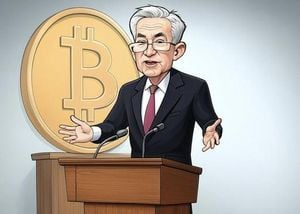Albertsons, the grocery chain familiar to many, has become embroiled in legal battles after its proposed $24.6 billion merger with Kroger faced setbacks from regulators. On December 11, 2024, just one day after both federal and Washington state courts blocked the merger, Albertsons wasted no time initiating legal action against Kroger, accusing it of breaching their agreement. The grocery industry was abuzz with news, as this merger represented the largest supermarket consolidation attempt in U.S. history.
The backdrop of this drama unfolded with judges ruling against the merger, aligning with the Federal Trade Commission (FTC), which had raised serious concerns about reduced competition and potential price hikes for consumers. Following these rulings, Albertsons announced the termination of the merger, labeling it as the only viable option after the courts’ decisions. "Considering the recent decisions by federal and state courts to obstruct our proposed merger with Kroger, we have made the challenging choice to terminate the merger agreement," said Albertsons CEO Vivek Sankaran. His sentiments mirrored the disappointment felt across the company.
Albertsons alleged multiple claims against Kroger, particularly highlighting their neglect to engage enthusiastically with regulators. According to Albertsons, Kroger's actions were contrary to their merger agreement obligations, citing repeated refusals to divest necessary assets, dismissing regulatory feedback, and failing to propose stronger alternate buyers for divested properties. They stated Kroger did not exercise the "best efforts" necessary to secure the deal's regulatory approval.
Tom Moriarty, general counsel and chief policy officer of Albertsons, expressed the gravity of the situation, indicating how the merger would have had positive ramifications for consumers and employees alike. "Rather than fulfill its contractual obligations to facilitate the merger, Kroger acted in its own financial self-interest, repeatedly providing insufficient divestiture proposals," he remarked. From Albertsons' perspective, Kroger’s self-serving conduct significantly harmed not only their shareholders but also their associates and consumers.
The lawsuit has been filed with the Delaware Court of Chancery, and details remain under seal. Albertsons is pursuing not only the $600 million termination fee due to the deal’s collapse but also billions more, which they claim would cover losses linked to the merger’s failure and the subsequent drop in share value.
On the other side of the legal battle, Kroger dismissed Albertsons' claims as baseless, asserting they had upheld their part of the agreement vigorously. They accused Albertsons of having committed multiple breaches during the merger process and clarified they would defend their position vigorously. Kroger expressed they are prepared to present evidence supporting their conduct during the turbulent regulation phase.
The failed merger encapsulates the tension within the grocery retail sector, where consolidation creates apprehensions about market competition. Albertsons noted, based on the court rulings, they felt their efforts to move forward with the merger had been stymied by Kroger's actions. The potential merger was initially proposed back in October 2022, with expectations of closing early the following year.
Leaders across the political spectrum, including state officials, welcomed the judicial decisions blocking the merger. Oregon Attorney General Ellen Rosenblum emphasized this ruling would preserve competition and serve as protection against increasing prices, fundamentally shielding everyday consumers from the fallout of corporate consolidation.
Upon confirming their decision to terminate the merger, Albertsons expressed no intention of wavering from its long-term objectives, asserting its strength as a stand-alone company. The firm is set to engage fully with its existing customer base, striving to maintain the loyalty of its clientele.
Albertsons, operating over 2,267 retail stores across multiple states under various banners such as Safeway and Vons, prides itself on its longstanding commitment to quality and community engagement. Though the merger's collapse is undoubtedly a setback, the company emphasized its focus on enhancing core offerings, implementing new technologies, and driving revenue through initiatives rooted deeply within its operational capabilities.
Simultaneously, Kroger, which operates 2,800 stores under well-known brands like Ralphs and Harris Teeter, remains steadfast, eyeing its future. They continue to push forward with their strategy focused on fresh offerings and digital innovation, asserting confidence in creating shareholder value.
This legal battle highlights more than just the rivalry between two supermarket giants; it unveils the broader themes of consumer protection and corporate governance as regulators remain vigilant against monopolistic market trends. Whether this lawsuit will lead to transformative changes within the industry remains to be seen, but at its core, there are lessons to be learned about compliance, fairness, and accountability as both entities navigate this fraught negotiation.



